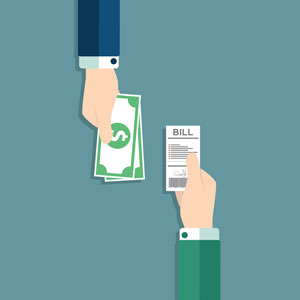 NEW YORK—How many times a day do you have the conversation with a patient in your practice about why there are additional exam charges for someone who wants a contact lens prescription? This is a common occurrence in most eyecare practices.
NEW YORK—How many times a day do you have the conversation with a patient in your practice about why there are additional exam charges for someone who wants a contact lens prescription? This is a common occurrence in most eyecare practices.
Many patients might even threaten that they can go find another OD in the area who won’t tack on extra charges. How do you deal with these questions and demands from patients in your office? We’ve put together 4 different strategies for battling this common question.
1. Start With the Specific Words You Use
If you’ve been getting a lot of complaints and questions on your contact lens evaluation fee, you might want to think about the words you use and if there is a better way to describe the appointment that will make patients better understand the costs. Different words to try are evaluation, exam, fitting or fee. An evaluation could imply that a patient will receive additional care or benefits vs. just calling it a “fitting.” Try out different messaging and see what resonates best with patients.
2. Provide Quotes Before the Appointment
Most times, it’s best to stay out in front of costs and questions. Quoting patients for their appointment ahead of time will help them understand what is covered by insurance and what isn’t, and gives them time to ask questions before they get into your office. If they can get their questions and concerns resolved before the appointment, they won’t be stirring up confrontation in the waiting room among other guests.
3. Make a Cheat Sheet
Having written information on hand for patients who still have questions about the costs of a contact lens exam can be a simple way to help them better understand the value they are getting from the appointment. Chances are, most patients are unaware of the extra time, resources and expertise that go into a contact lens exam versus a comprehensive exam. Things like added chair time, new technology, effects of contacts on eye health, and additional expertise and decision-making by the OD probably don’t cross their mind.
4. Don’t Negotiate
Negotiating on prices can have several negative effects for your business. It devalues your expertise and could open the door for others to expect the same discount time and time again. Be confident in your practice, expertise, knowledge and value when dealing with patients that complain about costs. Budging just one time could cause you to miss more revenue than you might think.
For more tips on dealing with tough patient conflicts visit the VisionWeb Blog.